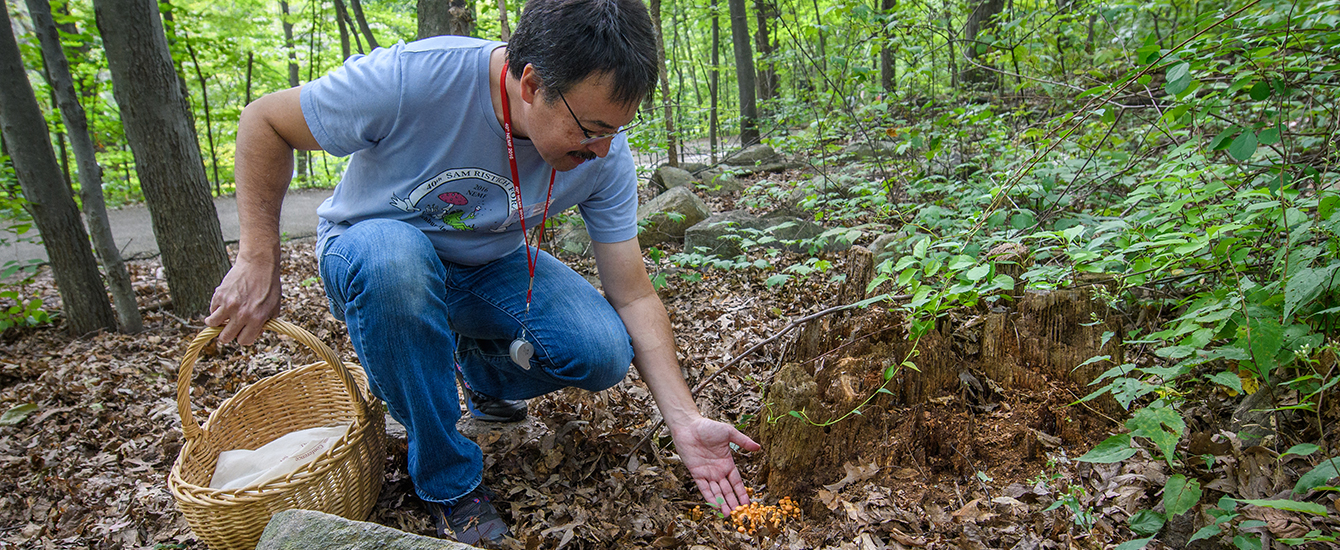Biology
Phylogenetic relationships of cyphelloid homobasidiomycetes
Document Type
Article
Abstract
The homobasidiomycetes includes the mushroom-forming fungi. Members of the homobasidiomycetes produce the largest, most complex fruiting bodies in the fungi, such as gilled mushrooms ("agarics"), boletes, polypores, and puffballs. The homobasidiomycetes also includes species that produce minute, cup- or tube-shaped "cyphelloid" fruiting bodies, that rarely exceed 1-2 mm diameter. The goal of this study was to estimate the phylogenetic placements of cyphelloid fungi within the homobasidiomycetes. Sequences from the nuclear large subunit (nuc-lsu) ribosomal DNA (rDNA), 5.8S rDNA, and internal transcribed spacers (ITS) 1 and 2 were obtained for 31 samples of cyphelloid fungi and 16 samples of other homobasidiomycetes, and combined with published sequences. In total, 71 sequences of cyphelloid fungi were included, representing 16 genera. Preliminary phylogenetic analyses of a 1477-sequence data set and BLAST searches using sequences of cyphelloid forms as queries were used to identify taxa that could be close relatives of cyphelloid forms. Subsequent phylogenetic analyses of one data set with 209 samples represented by nuc-lsu rDNA sequences (analyzed with parsimony) and another with 38 samples represented by nuc-lsu and 5.8S rDNA sequences (analyzed with parsimony and maximum likelihood) indicated that cyphelloid forms represent a polyphyletic assemblage of reduced agarics (euagarics clade, Agaricales). Unconstrained tree topologies suggest that there have been about 10-12 origins of cyphelloid forms, but evaluation of constrained topologies with the Shimodaira-Hasegawa test suggests that somewhat more parsimonious scenarios cannot be rejected. Whatever their number, the multiple independent origins of cyphelloid forms represent striking cases of parallel evolutionary reduction of complex fungal morphology. © 2004 Elsevier Inc. All rights reserved.
Publication Title
Molecular Phylogenetics and Evolution
Publication Date
11-2004
Volume
33
Issue
2
First Page
501
Last Page
515
ISSN
1055-7903
DOI
10.1016/j.ympev.2004.06.007
Keywords
Agarics, Cyphelloid fungi, Euagarics clade, evolutionary reduction, Homobasidiomycetes
Repository Citation
Bodensteiner, Philomena; Binder, Manfred; Moncalvo, Jean Marc; Agerer, Reinhard; and S. Hibbett, David, "Phylogenetic relationships of cyphelloid homobasidiomycetes" (2004). Biology. 278.
https://commons.clarku.edu/faculty_biology/278



